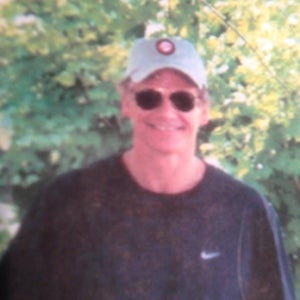 After four years in the English Department at the University of Wisconsin-Milwaukee, 1981-1985, I taught in the English department here at the University of Michigan for 27 years, retiring in 2013. In terms of my formal education, I have preparation in science, course work in English and American literature and music theory, an undergraduate degree in Philosophy, and a Ph.D. in Linguistics, with a specialty in syntax. Over the course of my career, I have explored various fields of study–science, history, philosophy, languages, linguistics, stylistics, poetry, rhythmics, poetics, and then the lives and work of a series of individual modern American poets, whom I admire and have a close affinity with in terms of interests and sensibility: E.E. Cummings, William Carlos Williams, Wallace Stevens, Robert Frost, Elizabeth Bishop, and Marianne Moore.
After four years in the English Department at the University of Wisconsin-Milwaukee, 1981-1985, I taught in the English department here at the University of Michigan for 27 years, retiring in 2013. In terms of my formal education, I have preparation in science, course work in English and American literature and music theory, an undergraduate degree in Philosophy, and a Ph.D. in Linguistics, with a specialty in syntax. Over the course of my career, I have explored various fields of study–science, history, philosophy, languages, linguistics, stylistics, poetry, rhythmics, poetics, and then the lives and work of a series of individual modern American poets, whom I admire and have a close affinity with in terms of interests and sensibility: E.E. Cummings, William Carlos Williams, Wallace Stevens, Robert Frost, Elizabeth Bishop, and Marianne Moore.
Retirement has not changed my intellectual habits–my reading and writing, publishing, participation in conferences, and so forth. I have continued to do from day to day what I have always done, and I don’t foresee that this pattern will change.
On this website, you will find my books, essays, reviews, teaching materials, research materials, activities, and ongoing thinking on a range of issues. As my work has gone on, I have stacked my intellectual projects. Each new project taken up has been built on the one that preceded it, creating a larger whole. As it turns out, this larger whole is a theory of poetry.
I call this theory of poetry Temporal Poetics, because it uses rhythm to motivate a theory of form, which I, in turn, use to fashion a poetics. Rhythm is the source of subjective time. So this poetics is temporal in its basic principles, rather than spatial. This temporal focus of my work on language, literature, culture, society, psychology, and nature, including human nature, is unusual and therefore is especially challenging to understand and appreciate. But exactly because of this oddness and novelty, it holds considerable promise of suggesting powerful and elegant ways of explaining what we have found so unaccountable and inexplicable about poetry. As Helen Vender likes to say, poetry is not what happens but the “music” of what happens. Over the centuries, vague, metaphorical definitions of poetry of this sort have been legion but have been little help in figuring out, fully, and in detail, how poetry is put together and why, as an art, always and everywhere, we have found it so profound–and so wonderful.

